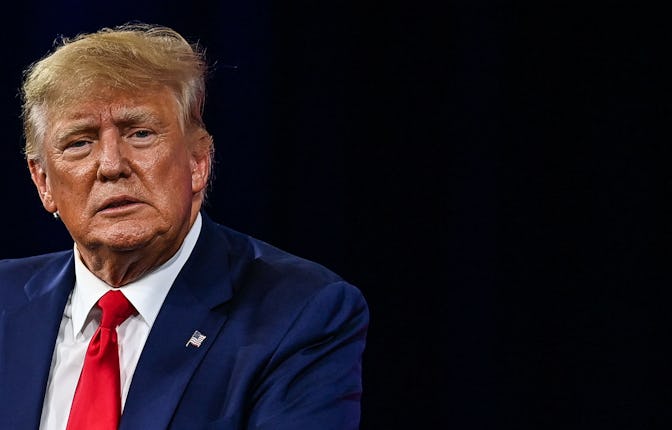The Jan 6 Committee finally starts to suspect Trump did some crimes
A new court filing suggests Trump may have participated in a "criminal conspiracy to defraud the United States" ... Ya think?

It’s been more than a year since former President Donald Trump encouraged a mob of violent seditionists to storm the United States Capitol in a vainglorious attempt to pry illegitimate victory from the jaws of obvious electoral defeat. And now, 421 days later, the House committee investigating the events leading up to and through the former president’s attempted coup has seemingly come to the same conclusion the vast majority of the country arrived at months ago: Donald Trump probably did some major crimes.
In a court filing submitted Wednesday evening in California, January 6 Committee attorneys presented for the first time their basic outline of potential criminal charges against Trump and his inner circle of enablers as part of his effort to overturn the 2020 presidential election. Among the possible charges that could be levied against the former president, the committee concluded, were “conspiracy to defraud the United States” and “obstruction of congress.”
The filing, made as part of an ongoing civil effort to compel cooperation from John Eastman, a Trump attorney and architect of the former president’s doomed legal effort to overturn the electoral results, marks a significant milestone in the committee’s work. Eastman had previously argued that attorney-client privilege between himself and Trump protected him from turning over documents requested by the committee. However, those privileges are nullified if the attorney and client are in the process of furthering or covering up a crime — which is what Wednesday’s filing sought to prove.
[E]vidence and information available to the Committee establishes a good-faith belief that Mr. Trump and others may have engaged in criminal and/or fraudulent acts,” the committee’s attornies explain in their brief, adding that “that Plaintiff’s legal assistance was used in furtherance of those activities.”
While the committee can’t in and of itself charge Eastman or Trump with any crimes, Wednesday’s filing offers the clearest look yet at what it might recommend the Department of Justice pursue in further legal action — as it did when it recommended former Trump strategist Steve Bannon be charged with contempt of congress last year.
As co-chairs Bennie Thompson and Liz Cheney wrote in a short statement that accompanied the brief: “The Select Committee is not conducting a criminal investigation. But, as the judge noted at a previous hearing, Dr. Eastman’s privilege claims raise the question whether the crime-fraud exception to the attorney-client privilege applies in this situation.”
“We believe evidence in our possession justifies review of these documents under this exception in camera,” they continued. “The facts we’ve gathered strongly suggest that Dr. Eastman’s emails may show that he helped Donald Trump advance a corrupt scheme to obstruct the counting of electoral college ballots and a conspiracy to impede the transfer of power.”
Of course, for any reasonable observer not bound by the labyrinthine rules of congressional and judicial investigatory practices, the conclusion that Donald Trump may have corruptly and illegally worked to subvert democracy and foment a riot seems a bit obvious. Nevertheless, considering how slow the gears of government typically turn, it’s probably best not to complain about this late realization, and instead celebrate the fact that it was actually reached in the first place.